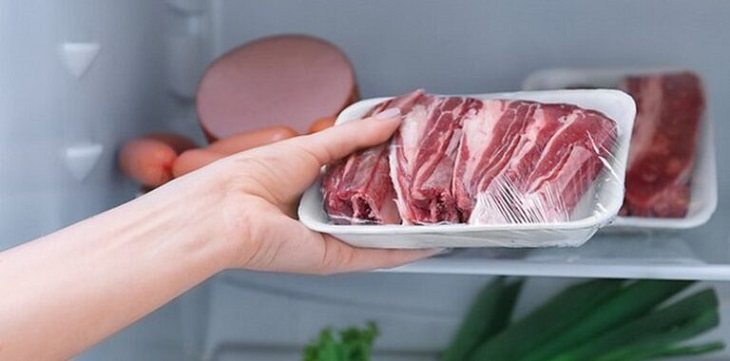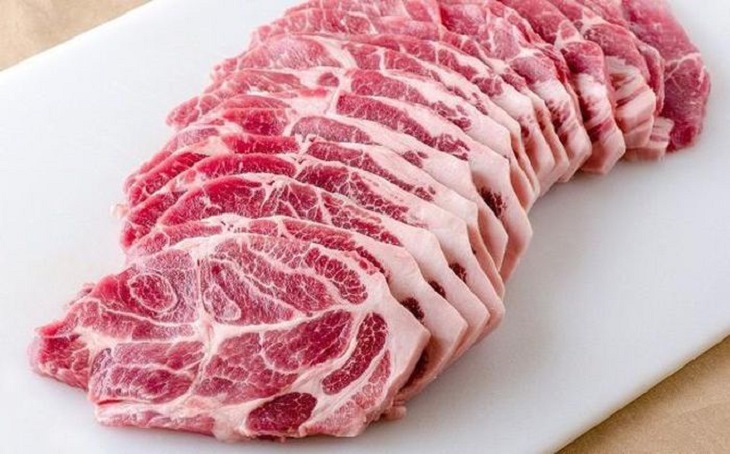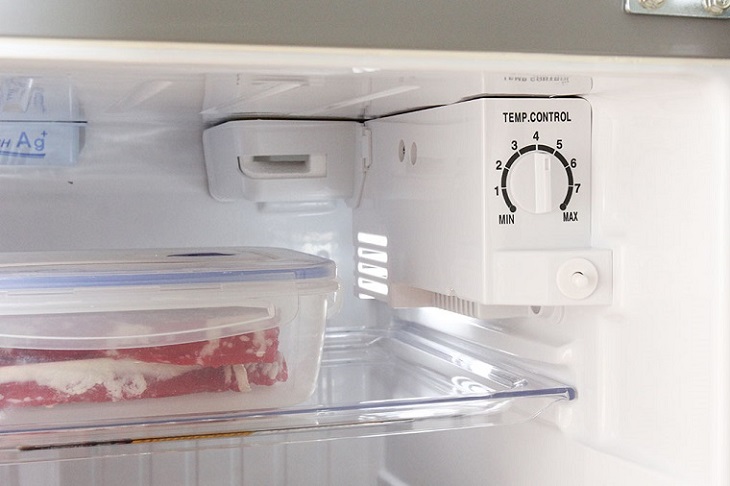1 Properly Wrap and Store Meat in the Refrigerator
When storing meat like pork, beef, and chicken in the refrigerator, it is important to wrap them tightly to maintain freshness and prevent the spread of harmful bacteria. You can use plastic bags or specialized food wrapping film for this purpose.

2 Storage Time for Each Type of Meat
Each type of meat has specific characteristics that affect its preservation and freezing times. Understanding these times can improve meat preservation.
For Fresh Meat:
If the meat is clean and uncontaminated before storage, it can be preserved for approximately 4 to 6 days in the refrigerator compartment and several months in the freezer compartment at the appropriate temperature. Thoroughly washing the meat before refrigeration is recommended.

For Cooked Meat:
Cooked meat has a shorter preservation time compared to raw meat. It can be stored for a maximum of 2 days in the refrigerator compartment and up to 6 months in the freezer compartment. Tightly wrapping the cooked meat with food wrapping film is recommended.
For detailed information on how to preserve each type of meat and their maximum storage times, refer to the table below:
|
Type of Meat |
Preservation Method |
Set Temperature |
Maximum Storage Time |
|
Whole raw pork |
Freezer compartment: Clean and refrigerate the pork in a plastic bag within 2 hours of purchase to prevent bacteria growth. |
-17oC to -18oC |
4 to 12 months |
|
Refrigerator compartment: Clean and marinate the pork with salt before refrigerating. |
1oC to 3oC |
5 days |
|
|
Cooked pork |
Freezer compartment: Wrap the cooked meat tightly with food wrapping film and place it away from other fresh food packages in the freezer compartment. |
-15oC to -18oC |
2 to 6 months |
|
Refrigerator compartment: Store the meat in a tightly covered box and refrigerate it after cooling. |
4oC to 5oC |
3 to 4 days |
|
|
Whole raw beef |
Freezer compartment: Clean and wrap the beef in a plastic bag within 2 hours of purchase to prevent bacteria growth. |
-17oC to -18oC |
4 to 12 months |
|
Refrigerator compartment: Clean and marinate the beef with salt or a mixture of salt and brown sugar before refrigerating. |
1oC to 3oC |
5 days for normal beef and 3 days for tenderloin |
|
|
Cooked beef |
Freezer compartment: It is recommended to vacuum pack the cooked beef before freezing. |
-15oC to -18oC |
2 to 6 months |
|
Refrigerator compartment: Store the beef in a tightly covered plastic box and refrigerate it. |
4oC to 5oC |
3 to 4 days |
|
|
Whole raw poultry |
Freezer compartment: After cleaning the poultry, place it in a plastic bag and freeze it to prevent spoilage. |
-17oC to -18oC |
1 year |
|
Refrigerator compartment: Marinate the poultry with salt and pepper before refrigerating for longer preservation. |
1oC to 3oC |
1 to 2 days |
|
|
Cooked poultry |
Freezer compartment: Wrap the cooked poultry tightly with multiple layers of plastic wrap or vacuum pack it before refrigerating. |
-17oC to -18oC |
2 to 3 months |
|
Refrigerator compartment: Store the cooked poultry in a plastic box with a tight lid, away from other fresh food. |
4oC to 5oC |
5 days |
|
|
Raw ground or minced meat |
Freezer compartment: Vacuum pack the ground or minced meat within 1 hour of purchase to prevent spoilage. |
-17oC to -18oC |
3 to 4 months |
|
Refrigerator compartment: Place the meat in a container and marinate it with salt or salt and brown sugar to prevent bacteria growth. |
1oC to 3oC |
1 to 2 days |
|
|
Cold cuts and sausages |
Freezer compartment: Leave the cold cuts and sausages in their original packaging and place them in the freezer compartment. |
-15oC to -18oC |
1 month |
|
Refrigerator compartment: If the packaging has been opened, repackage the cold cuts and sausages before refrigerating. |
4oC to 5oC |
2 weeks if unopened and 2 days if opened |
To monitor the refrigerator temperature, place a thermometer between the frozen meat packages and adjust the temperature accordingly.
3 Properly Arrange Meat in the Refrigerator
Properly organizing the placement of raw and cooked meats in the refrigerator is crucial to prevent bacterial contamination and maintain meat quality. Avoid overcrowding the refrigerator with excessive amounts of meat.
4 Practice Proper Hygiene When Handling Meat
Meat can harbor harmful bacteria, so it is vital to wash your hands before and after handling meat. Thoroughly clean kitchen utensils to prevent the spread of bacteria.

These are some tips for preserving meat in the refrigerator. We hope that these guidelines will help you maintain meat freshness and ensure food safety in your daily household tasks.
Tips for Prolonging the Life of Refrigerator Labels
Are you looking for a way to keep your longan delicious and fresh for a long time? This article provides helpful advice for choosing high-quality longan and correctly storing it in the refrigerator for year-round enjoyment.
8 Common Mistakes People Make with Cutting Boards
Are you using your cutting board correctly? Many Vietnamese households rely on cutting boards in their kitchen, but not everyone knows how to use them properly, especially when it comes to wooden cutting boards. Check out these 8 mistakes to avoid when using a cutting board to ensure both hygiene and safety for everyone in your family.
Is Refrigerated Leftovers Linked to an Increased Risk of Cancer?
Dr. Lam Van Man, Head of Research, Development and Technology Transfer Department of the Institute of Safety Food, has warned of the risk of food poisoning when reheating leftovers from the refrigerator. But what should we be aware of when it comes to the possibility of these leftovers causing cancer? Here, we explore what the experts have to say on the matter and offer some tips for safe eating.






































